The Solo Resource Recovery trucks unload at Australian Native Landscapes’ transfer station at Weston. Here, ANL’s quality control staff, manually screen the collected material before it is sent to their Tea Gardens facility for further processing.
At Tea Gardens the material is shredded and irrigated to increase the moisture content and then placed in wind rows to let nature take over.
During the next six months, the temperature and moisture levels of the windrows are monitored and controlled by regular turning and irrigating to maintain the required oxygen and moisture level required to promote the growth of bacteria that will naturally break down the material.
The final material is then screened and sorted by size for use in a variety of soil conditioners that meet Australian Standards.
It is through this 6 month process of pasteurisation that all weed seeds pathogens and chemicals are removed leaving a high quality, carbon rich, organic compost and mulch which is available though leading hardware and landscape suppliers for use by home gardeners and farmers.
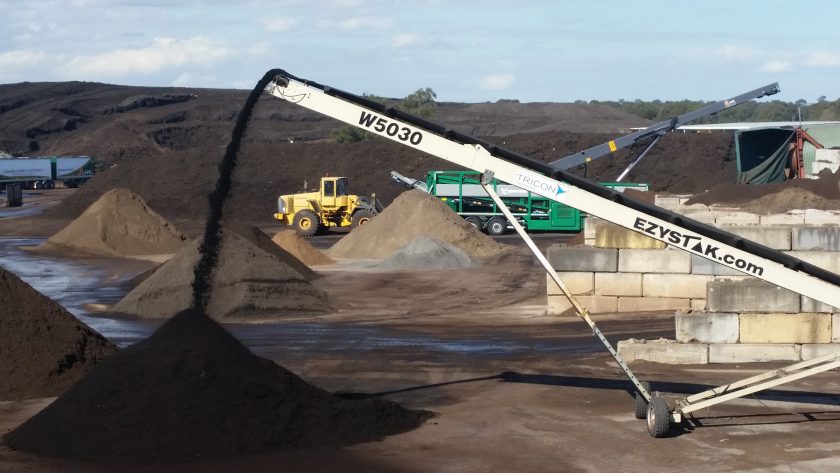
ANL’s Tea Gardens Facility
The screened material is irrigated and regularly turned to maintain the correct moisture, oxygen and temperature levels.
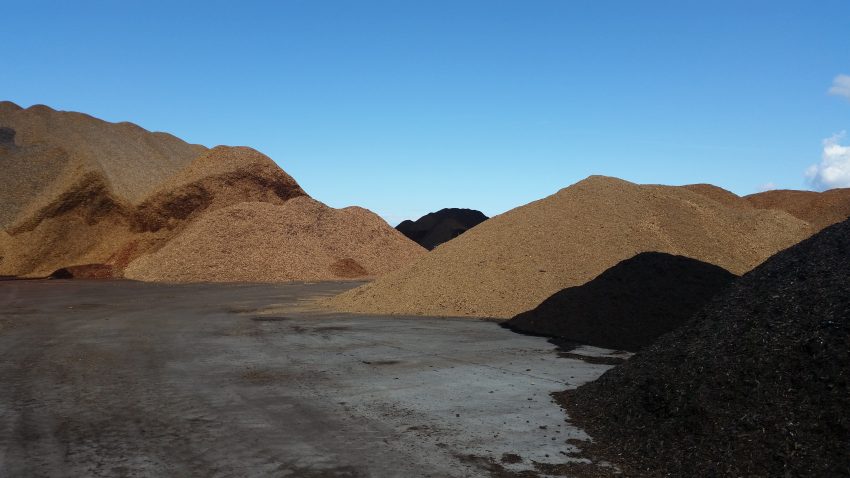
Windrows
The organics are stacked in windrows for 6 months and monitored while nature takes it’s course.
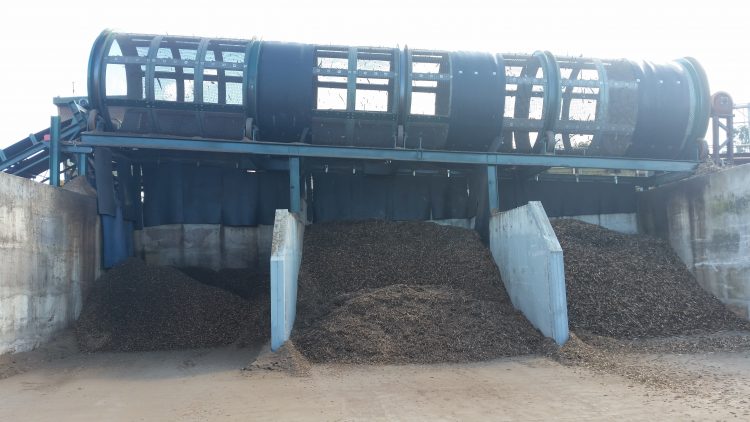
Screening
The processed material is screened through a trummel for impurities and graded by size for use in a variety of soil conditioners and composts.
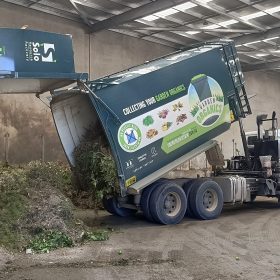
Transfer Station
The Solo trucks unload at Australian Native Landscapes Weston Transfer Station for quaity screening.
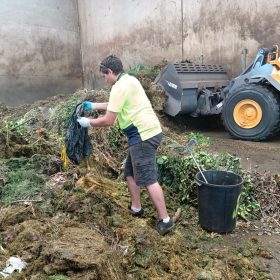
Padding Out / Cleaning
The organics are spread out for teams to manually remove any contamination. It is then transported to Tea Gardens for processing.